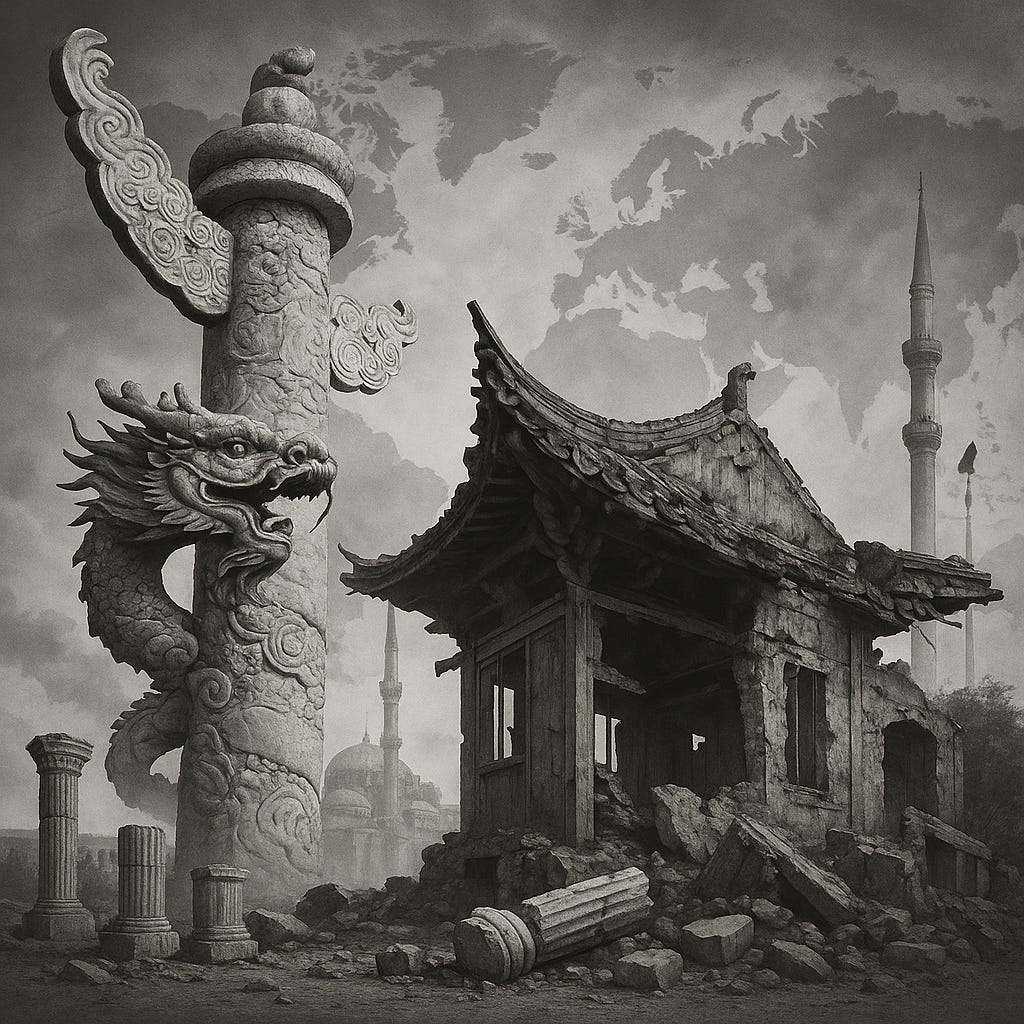Friday Edition: The Qing Dynasty — When a Global Power Turned Inward
What Makes Empires Fall?
The Qing Dynasty ruled the largest economy in the world. It governed more people than any other state of its time and controlled trade routes across East and Central Asia. Its cities were wealthy, its agriculture was productive, and its bureaucracy was efficient enough to manage more than 400 million people.
But the dynasty made one critical choice that …



